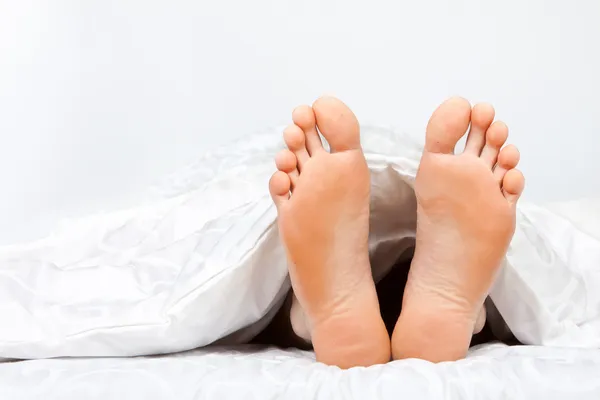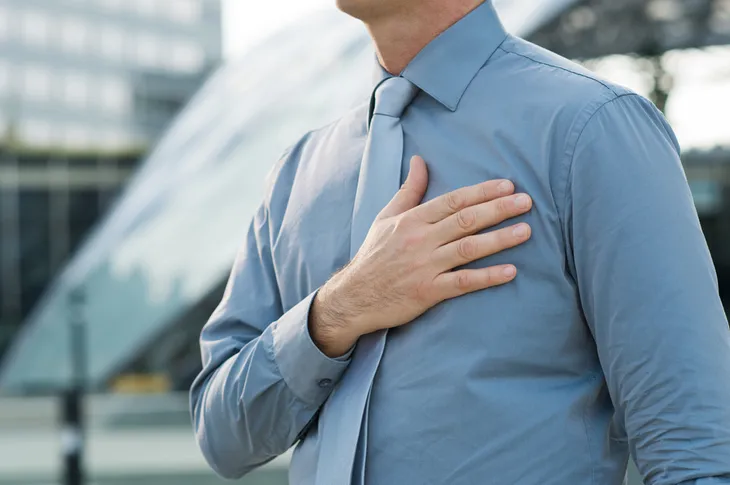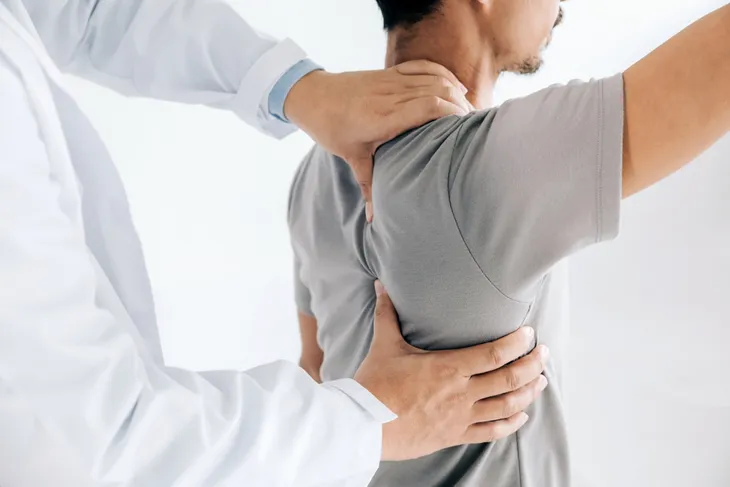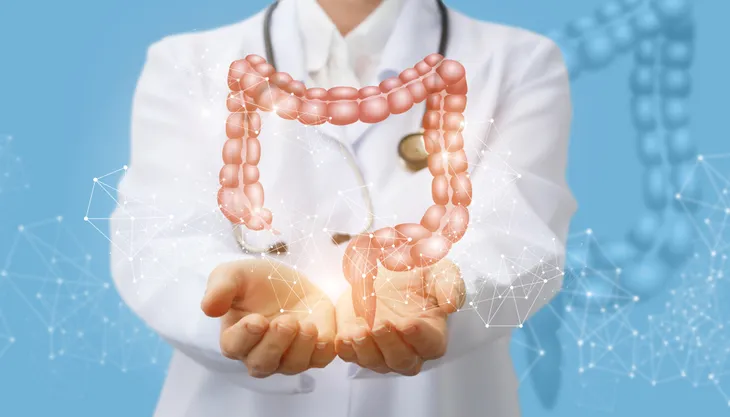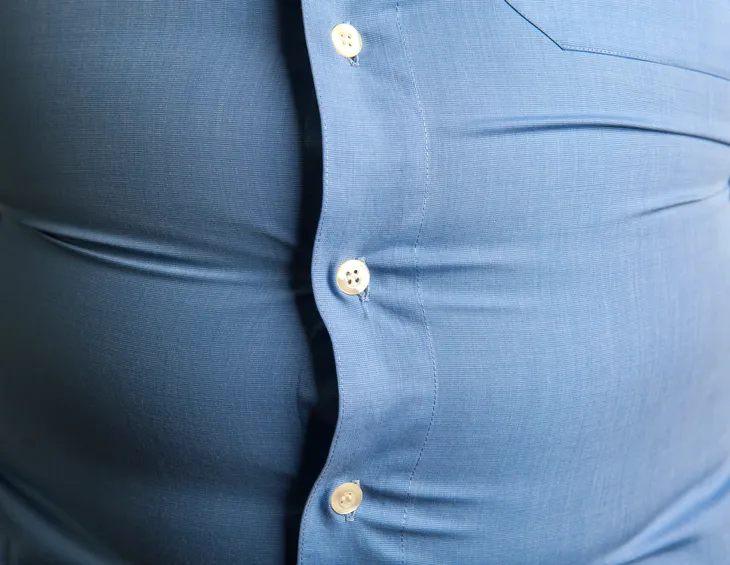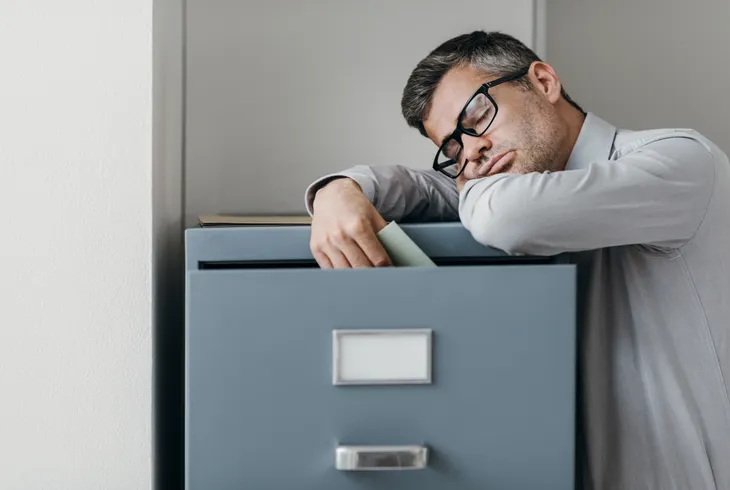- Recognizing signs of depression in men can be especially important because men are less likely to seek medical treatment for the condition.
- Common signs to look out for include aggression, irritability, heart issues, aches and pain, unexplained weight changes, digestive problems, social withdrawal, reckless behaviors, and fatigue.
- If you or a loved one is displaying signs of depression, talk to a medical professional.
Depression can strike almost anyone at any age, including children. But the mental illness can look different in different people, and has certain markers in male patients that can include increased aggression.
Recognizing signs of depression in men can be especially important, as Medical News Today says that men are less likely to seek medical treatment for the condition — while sometimes turning to other unhealthy coping strategies. Read on to learn more about telltale symptoms of depression in men.
Aggression and Irritability
Medical News Today notes while sadness is a common sign among men and women, some men do not feel comfortable expressing this emotion for fear of criticism. For that reason, men can instead lash out as an early sign that there’s a problem.
That can include feeling angry, easily frustrated, or irritated, adds the source. It can also present as increased aggression, it adds. If you’re feeling more easily agitated lately or a loved one is acting out, then it could be a sign there’s depression creeping in.
Loss of Libido
WebMD says that depression can affect men’s enjoyment in the bedroom, from arousal to performance. The source explains that like sadness, men do not like to admit they are experiencing sexual issues. “Many mistakenly feel that the problems are related to their manhood, when, in fact, they are caused by a medical problem such as clinical depression,” the source says.
Meanwhile, some medications used to treat depression can also have a negative impact on the male libido, explains the source. But the good news is that these particular side effects can be temporary.
Heart/Chest Issues
Depression does not end with psychological impacts. It can also affect the body in certain ways. In fact, according to Healthline, there can be certain physical symptoms in men including tightness in the chest that might be cause for some alarm.
The source also explains that a racing heart or heart palpitations may also occur in male depression patients. These can often be stress-related signs, and can also be triggered by certain medications.
Aches and Pains
You haven’t been exerting yourself lately — so what’s with the unexplained, nagging pains? Seemingly random aches can appear throughout your body and this can be related to depression, notes Healthline.
Meanwhile, the source says that headaches can be a fairly common sign of depression (although there are many possible reasons for a throbbing head). So if there’s no obvious root cause for your aches and pains, then you might want to consider some of the other symptoms and see a doctor if you’re concerned.
Digestive Problems
While some sources note tummy troubles can be a sign of depression in men, Everyday Health further explains the “brain-belly connection.” It says one of the first reactions to being upset is often nausea or loss of appetite (or perhaps piling in some comfort food).
“The brain and the gastrointestinal system are so closely linked that tummy troubles can be the cause of, or the result of, anxiety, stress, or depression,” notes the source. Depressed patients can also experience excessive gas, diarrhea, constipation, or cramping.
Substance Abuse
Help Guide explains there’s a link between substance abuse and mental health. If you’re diagnosed with both depression and a substance abuse issue, it’s known as a “co-occurring” or “dual” diagnosis, notes the source.
It says that if a mental health condition (like depression) isn’t treated, it can worsen substance abuse. And it’s a vicious cycle because more abuse of drugs and alcohol can worsen mental health issues. While Healthline cites drug abuse/excessive drinking as a symptom of depression in men, Help Guide estimates about 50-percent of those with “severe” mental disorders are also affected by addiction.
Reckless Behaviors
While some may consider substance abuse to be reckless (it’s actually a chronic disease), there are other behaviors that fit squarely into the “reckless” category — and they occur more often in depressed men than women, says Men’s Health.
It notes that when men can’t express their feelings of depression adequately, they may express it in ways that can be a risk to themselves and others. That could be in the form of excessive speeding in a car or getting into fights.
Trouble Keeping Up With Responsibilities
When you’re feeling well (and not depressed), you might sometimes take for granted the ability to perform routine responsibilities such as grocery shopping, caring for family members, or meeting (or even exceeding) obligations at work.
However, when you’re dealing with depression — especially if you’re a man — all of this can fall to the wayside, says the National Institute of Mental Health (NIMH). The source explains that not being able to meet responsibilities associated with work and family (or other important things) can be a sign of depression in males.
Unexplained Weight Changes
Men’s Health says men with depression can sometimes lose weight unexpectedly (and there can be an accompanying loss of appetite). While some people might welcome this, it’s not a great sign to lose pounds when you’re not trying to. It could be a result of depression, but also from other causes such as thyroid issues or Crohn’s disease.
While weight loss can occur in depressed patients, weight gain can also be a symptom. “If you’re too depressed to hit the gym or think carefully about what you eat, then you might start packing on the pounds pretty quickly,” notes the source. Up to a quarter of people who take certain antidepressant medications can gain 10-pounds or more.
Avoidance and “Escapism”
The Mayo Clinic says there are some other signs that “could be” signs of depression but aren’t officially recognized as such. One of them is “escapist” behavior, such as filling up your schedule with work or recreational activities.
This ties in with what Healthline says about the subject, noting that “emotional withdrawal from friends, family, and colleagues” is something to look out for in men. WebMD rounds this out by noting men are more likely to be withdrawn than women experiencing depression.
Exhaustion/Fatigue
If you’re having issues falling asleep, and you’re finding yourself struggling to last through a day without a nap, then it could be signs of depression. “Sleep disturbances are one of the earliest and most common features of depression,” notes Men’s Health.
The source cites a review that suggests up to 75-percent of depressed patients experience insomnia. You might also be waking up during the night or before your alarm goes off in the morning. This might be due to the “million terrible thoughts running through your mind” that keep your brain active when it should be at rest, explains the source.
When to See a Doctor
As noted earlier, many men with depression are reluctant to seek medical help for their lowered mood, which can lead to substance abuse or worse. “Generally, men are socialized by society to hold in their emotions, though we know doing so isn’t healthy,” explains Healthline. Many men aren’t well-versed in specific depression symptoms, so they go ignored.
It’s important to recognize the signs and have a conversation with a professional, as fatality rates are three to four times higher in men with depression than women with the same condition, it notes. There are several treatment options available, and not all of them involve medication. For example, psychotherapy (talk therapy) can be helpful with or without medication prescribed, says the source. The bottom line is, if you or a loved one is displaying signs of depression, talk to a medical professional.


